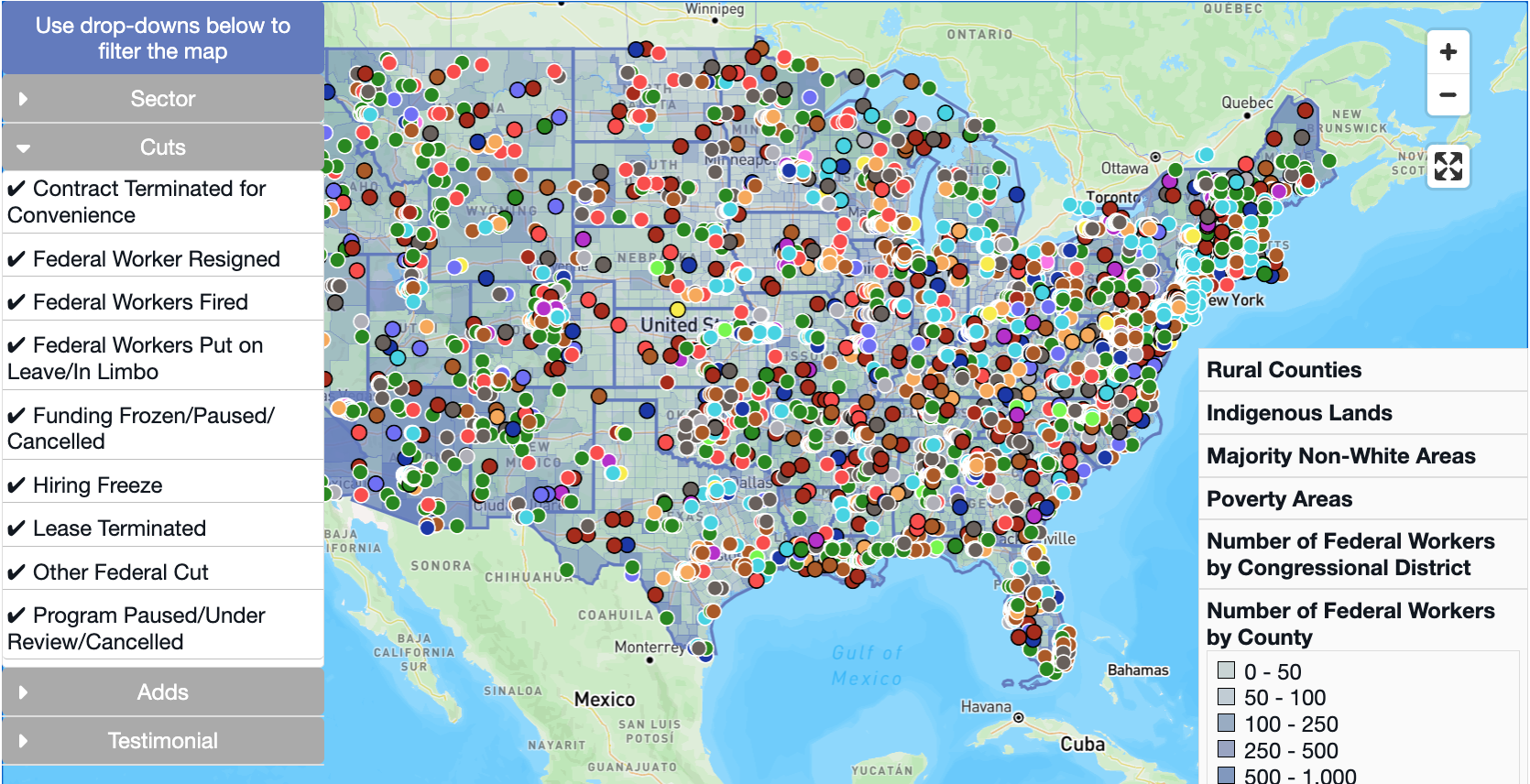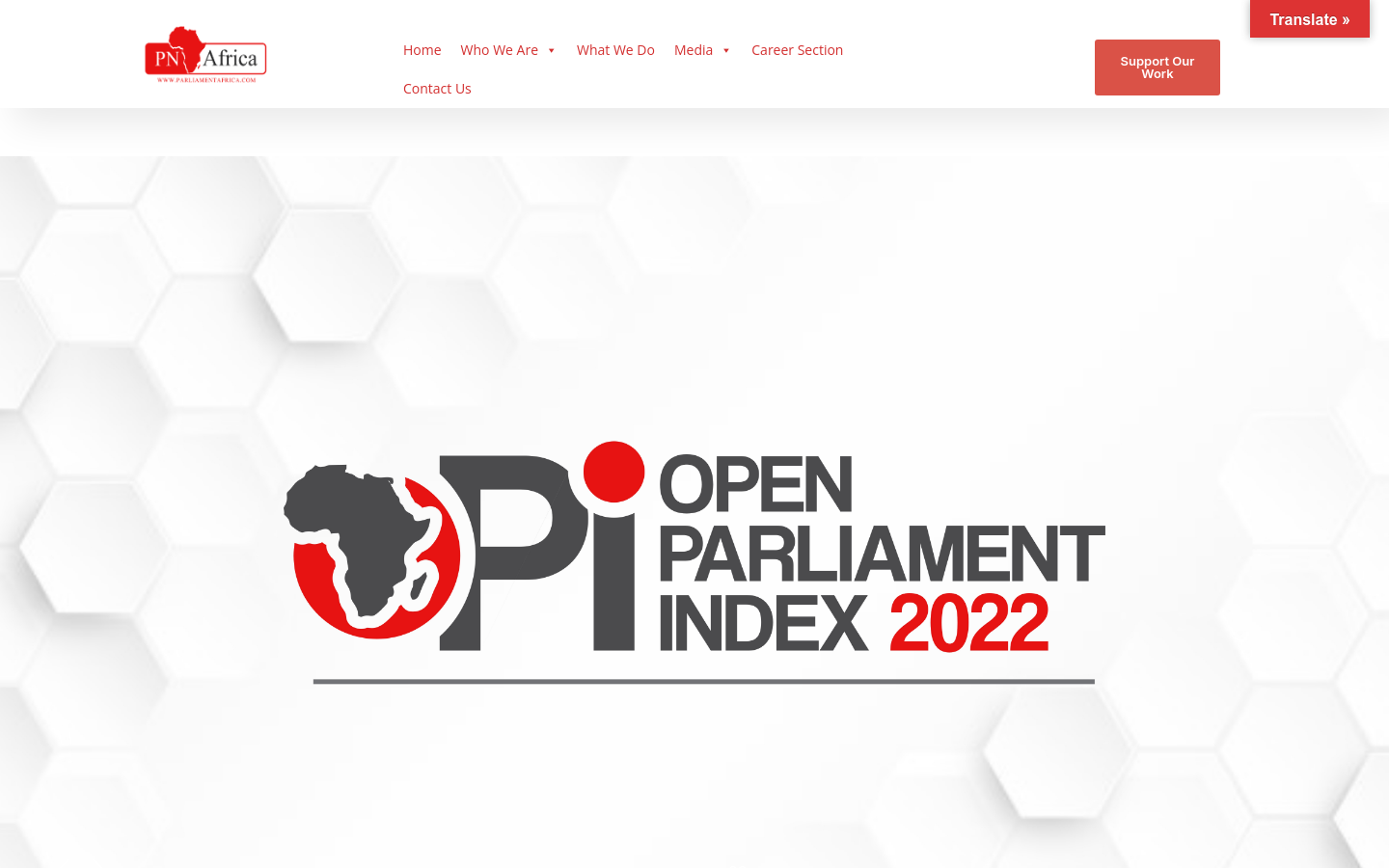Civic Tech Field Guide
Sharing knowledge and productively growing the fieldThe People > Evaluate impact - (91)
Demonstrating impact in the civic tech field can be hard. In this section of the guide, you will find tools that can be used by governments, organizations and communities to track performance, collect data and manage impact. In addition to resources for building monitoring and evaluating systems, you can explore databases to analyze public policy or researches on how entities and nonprofits that use tech and data are generating positive effects.
Recommended resources:
- Code for All and Code for Canada's Monitoring & Evaluation Workshop (2022)
Showing 91 Results

Consult Evaluation: Scottish Government’s Non-surgical cosmetic procedures consultation
10 Downing Street"Consult was generally good at identifying the themes in a given consultation response."

This resource highlights 19 key findings on the short- and long-term impacts of participatory budgeting on people, communities, and governments.

SAAFE
United Kingdom of Great Britain and Northern Ireland (the)Human-Centred Principles for the Design and Implementation of Deliberative Technologies

The Impact Map
United States of America (the)The Impact Map provides timely data—as it becomes available—on policy, funding, and workforce changes and their localized effect. This tool is currently in beta and will continue evolving, so you may find areas that need updating.

Lukim Gather
Williamsburg, VAHow do we ensure that community data from Papua New Guinea’s protected areas is reported and heard?

Generative AI Accountability Indicators (GAIA)
740 15th Street, N.W., Suite 900 Washington, DC 20005Soon Ranking Digital Rights will release the Generative AI Accountability Scorecard, evaluating major consumer-facing generative AI services’ respect for the human rights to privacy, non-discrimination, freedom of expression, and freedom of information.

Digital Good Index
United Kingdom of Great Britain and Northern Ireland (the)The Digital Good Network will produce a Digital Good Index which can be used to evaluate digital innovations to ensure good societal outcomes.

DigiAdGood
United Kingdom of Great Britain and Northern Ireland (the)DigiAdGood seeks to create new digital advertising principles and measurement frameworks that go beyond this and better align human and business goals.

The 2022 Ranking Digital Rights Telco Giants Scorecard
740 15th Street, N.W., Suite 900 Washington, DC 20005Ranking Digital Rights's inaugural Telco Giants Scorecard reveals that telecom companies, despite being gatekeepers of the internet for most of the world, are less transparent overall and more susceptible to government demands than their Big Tech peers.

GitLab Foundation Learning for Action Fund
United States of America (the)The GitLab Foundation launched the Learning for Action Fund in June 2024 to alleviate these problems and increase our grantees’ capacity to deepen their impact measurement, learning, and feedback work.

In this paper, building on insights from the theory and practice of deliberative democracy, we provide a "Democracy Levels" framework for evaluating the degree to which decisions in a given domain are made democratically.

The E-Government Development Index presents the state of E-Government Development of the United Nations Member States.

A country’s EPI reflects the e-participation mechanisms that are deployed by the government as compared to all other countries.

Fonselp
Buenos AiresWe are a non-profit organization that has created the ideal platform, a SFRM (Sustainability Flow Relationship Manager), to donate, make responsible purchases, measure the impact of your teams, and connect with thousands of organizations that are changing the world.

Civic Information Index
United States of America (the)The Civic Information Index uses data to map drivers of engaged, informed, equitable, and healthy communities nationwide.

Africa Open Parliament Index (OPI)
GE185-7537 BOHYE ROAD (ECOWAS HIGHWAY), NEW ASHONGMAN ESTATE, ACCRA GHANAThe Index will enable civil society to work together with national and regional parliaments to identify systemic challenges to achieving parliamentary openness and to co-create reforms that will strengthen the capacity of parliaments to enhance their openness.

Accountability Research Center (ARC)
Washington, DCAccountability Research Center bridges research and frontline perspectives to learn from ideas, institutions, and actors that advance strategies to improve public and corporate accountability. Learn more Make a gift to ARC

Paper by Joy Aceron, 2019. This paper explains why and how a reform program that opened up spaces for participatory budgeting was ultimately unable to result in pro-citizen power shifts that transformed governance.

GOV.UK Service Standard Reports
United Kingdom of Great Britain and Northern Ireland (the)Assessments of government programs provided by the Central Digital and Data Office

GovTech Maturity Index (GTMI)
Washington, DCThe GovTech Maturity Index (GTMI) was developed as part of the GovTech Initiative to introduce a measure of GovTech maturity in four focus areas — supporting core government systems, enhancing service delivery, mainstreaming citizen engagement, and fostering GovTech enablers— and to assist practitioners in the design of new digital transformation projects.

El programa Cali Cómo Vamos, el laboratorio ciudadano Mi Cali Contrata Bien, la Unidad de Acción Vallecaucana y el observatorio Cali Visible, ponen a disposición una ruta de obtención de datos referidos a indicadores de bienestar y gestión pública de la ciudad.

Cali Cómo Vamos
CaliCali Cómo Vamos es un programa de seguimiento y evaluación de la calidad de vida en la ciudad, tiene como referencia el Programa “Bogotá Cómo Vamos”, adelantado desde 1998 por iniciativa de la Casa Editorial El Tiempo, la Cámara de Comercio de Bogotá y la Fundación Corona.

Open Government for Stronger Democracies
OECD, Rue André Pascal, Paris, FranceAn OECD global assessment of countries' implementation of its 2017 Recommendation on Open Government

Relationality Lab
St Louis, MOWe help people who nurture relationships that drive change prove that their work has impact.

The only solution that combines an AI grant-writer, a case management system, a CRM, a booking platform and impact reporting — so you can get more funding, keep costs low, and keep all your information in one place.


Civic Engagement Scorecard
Washington, DCIt's a quick tool for the public to rate: 1) Official public meetings (such as city council meetings, board/commission meetings, school board meetings) that you have attended. 2) How connected your community (people, organizations and institutions) is.

Oxford Insights
United Kingdom of Great Britain and Northern Ireland (the)We make technology work for the public good

Mission Metrics
Oakland, CaliforniaWhen founding The Oaklandside in 2020, we launched Mission Metrics, an innovative pilot program for reader feedback.

Impact Tracker
OhioThe IA Impact Tracker is a digital platform to help news organizations, funders, and other stakeholders understand the impact of journalism by defining, measuring, and tracking real world change.

Understanding journalism impact: A multi-dimensional taxonomy for professional, organizational and societal change
United States of America (the)Drawing on literature from multiple disciplines, we propose a multi-faceted metric which future researchers, journalists and news agencies will be able to use when analysing media impact.

Cheeri IMM
Hong KongBy making it easy for impact funders and fundees to define, measure, analyze, report and manage their impact projects, we help purpose-driven organizations such as social enterprises and nonprofits get trust-based, continuous funding.

ReliefWeb Numbers
New York CityThe new ReliefWeb Numbers site aims to deliver easily discoverable topline numbers on the world's most pressing humanitarian crises.

Suomi.fi Quality Tools
Finland (Suomi)Finnish government tools to make it easy for government offices to assess and improve upon their digital service delivery

How do you measure gifts of time, expertise and leadership? What indicators can you use to assess grassroots power building, organising and volunteer initiatives?

Iguala
Madrid (Spain)IGUALA es el sistema de analítica avanzada del Ayuntamiento de Madrid para elaborar el Índice de Vulnerabilidad Territorial Agregado.

A collection of case studies where civic tech interventions have resulted in tangible improvements and benefits for governments/public institutions and their citizens, by People Powered

IDinsight
AfricaIDinsight is a mission-driven global advisory, data analytics, and research organization that helps global development leaders maximize their social impact.

The SDG16 Survey jointly developed by UNDP, UNODC and OHCHR provides a high quality, well tested tool that countries can use to measure progress on many of the survey-based indicators under SDG16.

A series of articles interrogating the concept of rigor in the context of impact evaluation in our work, by Keira Lowther

Research Excellence Framework Impact case study database
United Kingdom of Great Britain and Northern Ireland (the)"Documents put together by university departments that attempt to explain the reach of their research beyond academia."

Automated data gathering, simple ESG frameworks & actionable insights for venture capital investors and portfolio companies.

The Data for Good Fund, a single-entity fund, was established in partnership with the Tides Foundation. With donations from mission-aligned donors, the Data for Good Fund will allow nonprofits to leverage UpMetrics tools and services at no cost for 1-2 years.









